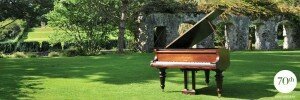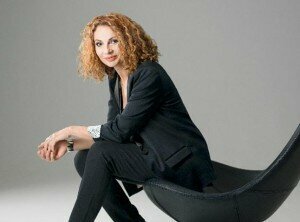 For musicians, professionals and amateurs alike, the name Dartington evokes magical memories of intense and inspirational music-making in a beautiful secluded enclave of Devon, UK.
For musicians, professionals and amateurs alike, the name Dartington evokes magical memories of intense and inspirational music-making in a beautiful secluded enclave of Devon, UK.
A Medieval manor, former home of John Holand, replete with a great hall and verdant grounds, provides the setting for a busy month of concerts, masterclasses, courses and significant interactions between musicians. Friendships are forged in Dartington’s special atmosphere and for many it is the highlight of their musical year. Since its foundation in 1948, thousands of participants have shared in Dartington’s magic, from renowned musicians such as Imogen Holst, William Glock (the first Artistic Director), Peter Maxwell Davis, Nadia Boulanger, Richard Rodney Bennett, Anne-Sophie von Otter, Alfred Brendel, Natalie Klein, and Tamara Stefanovich (to name but a few) to keen amateur musicians who go to learn, be inspired to play at the highest possible level, mingle with other musicians and like-minded people, and thoroughly immerse themselves in its compelling and diverse community of performers, composers and thinkers. For many it is a wonderful musical “retreat”, and some return year after year.
Music of all sorts pervades the place for those summer weeks – as you walk into the mediaeval courtyard, you hear random snatches of music coming through the windows: the choir rehearsing a Bach Passion in the Great Hall, a string quartet practising late Beethoven in an upstairs room, a duo practising a cello sonata. (Julian Davis)
This year marks the 70th anniversary of Dartington International Summer School (DISS). Since its creation in 1948, DISS has a long-standing and consistent dedication to music and musical innovation, and it quickly became a meeting ground for those keen to explore a new musical landscape. Stravinsky visited in 1957, and its composition classes have featured Harrison Birtwistle, Alexander Goehr, Hugh Wood, and Cornelius Cardew, all of whom testified to the summer school’s ever-increasing value in the musical world.
Joanna Macgregor – Excursions (I. Un poco allegro) by Samuel Barber

Joanna Macgregor
Adrian & Alfred Brendel – Beethoven Sonata for Cello & Piano, Op 5, No 1 ( I. Adagio sostenuto – Allegro)
So what makes DISS so special? I spoke to Julian Davis, a retired professor of medicine and talented amateur pianist, to get a first-hand flavour of the Dartington experience……
A week at DISS involves music-making throughout every day – for an amateur like myself, it gives the opportunity to aspire to play at the highest possible level, to mingle with a wide variety of musicians, ambitious and often very accomplished amateurs, emerging young professionals, and long-admired performers. The day can start with solo practice, Tai chi on the lawns, or just breakfast with old or new friends – singers, pianists, cellists, conductors… From 9 to 5 the day is full of workshops, master-classes, chamber music coaching, and of course the chance to just sit outside in the Devon sunshine enjoying tea and cake. And then there are concerts at 5pm, 8pm and 10pm, followed by late night conversations at the bar.
Chamber music has long formed a big part of the Dartington experience: from fun play-throughs of well-known pieces, to intensive coaching on major challenges. A recent highlight for me was learning the Ravel piano trio with two friends, with coaching sessions every day for a week… and discovering that a work that had seemed impossibly difficult was finally coming within our reach – at least in principle!
As a pianist I have learned a huge amount from master-classes and workshops – they mix relaxed informality with the tension of playing in front of others. You join in, proud to have worked hard to prepare pieces for the week, but acutely aware of the deficiencies that remain! But the coaching is superb, with patient good humour and the aspiration to turn the music-making into something special. Sitting in workshops with fellow-performers is fun: after a week all of us have had our playing scrutinised, discussed, enhanced and enjoyed, and a strong camaraderie develops.
The Friday night final concert usually involves the big choir and Dartington Festival Orchestra in the Great Hall. Gazing around the faces in the choir and the audience, I have the sense that everyone there has achieved something personally important during the week, be they professional performers, doctors, lawyers, mathematicians, teachers, scientists, accountants, writers… Dartington provides a rich musical experience that benefits from its scale and ambition, with exciting programmes and internationally renowned performers. But it has also fostered many friendships across generations and across diverse professional lives, forgetting the boundaries between amateur and professional, so that all that matters is the music-making: serious, fun, and life-enhancing.
More about the 2018 Dartington International Summer School



